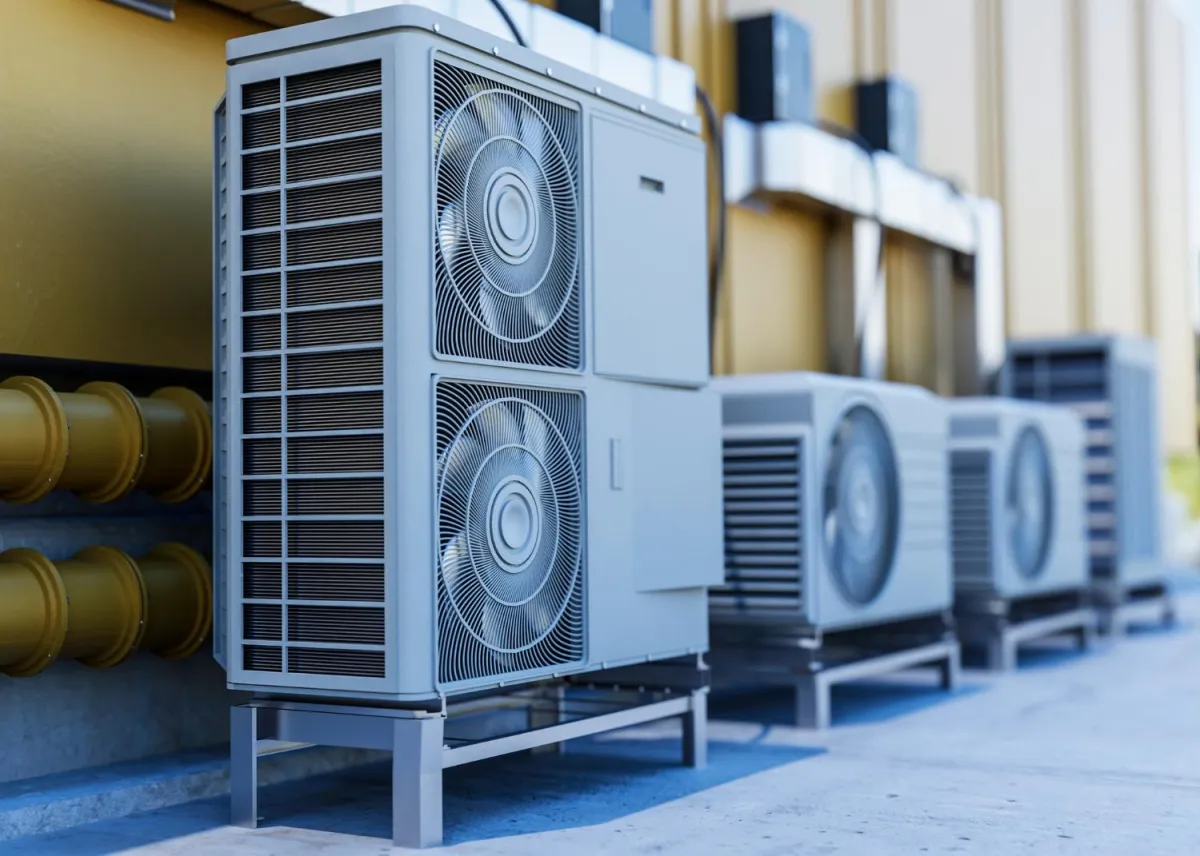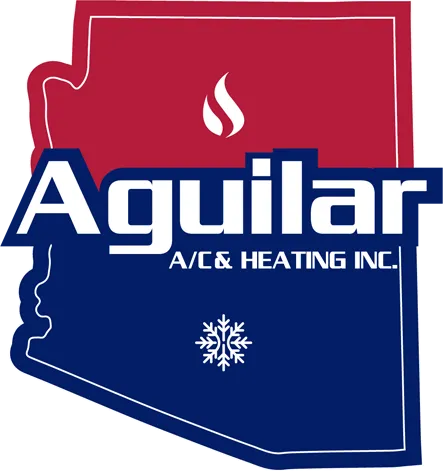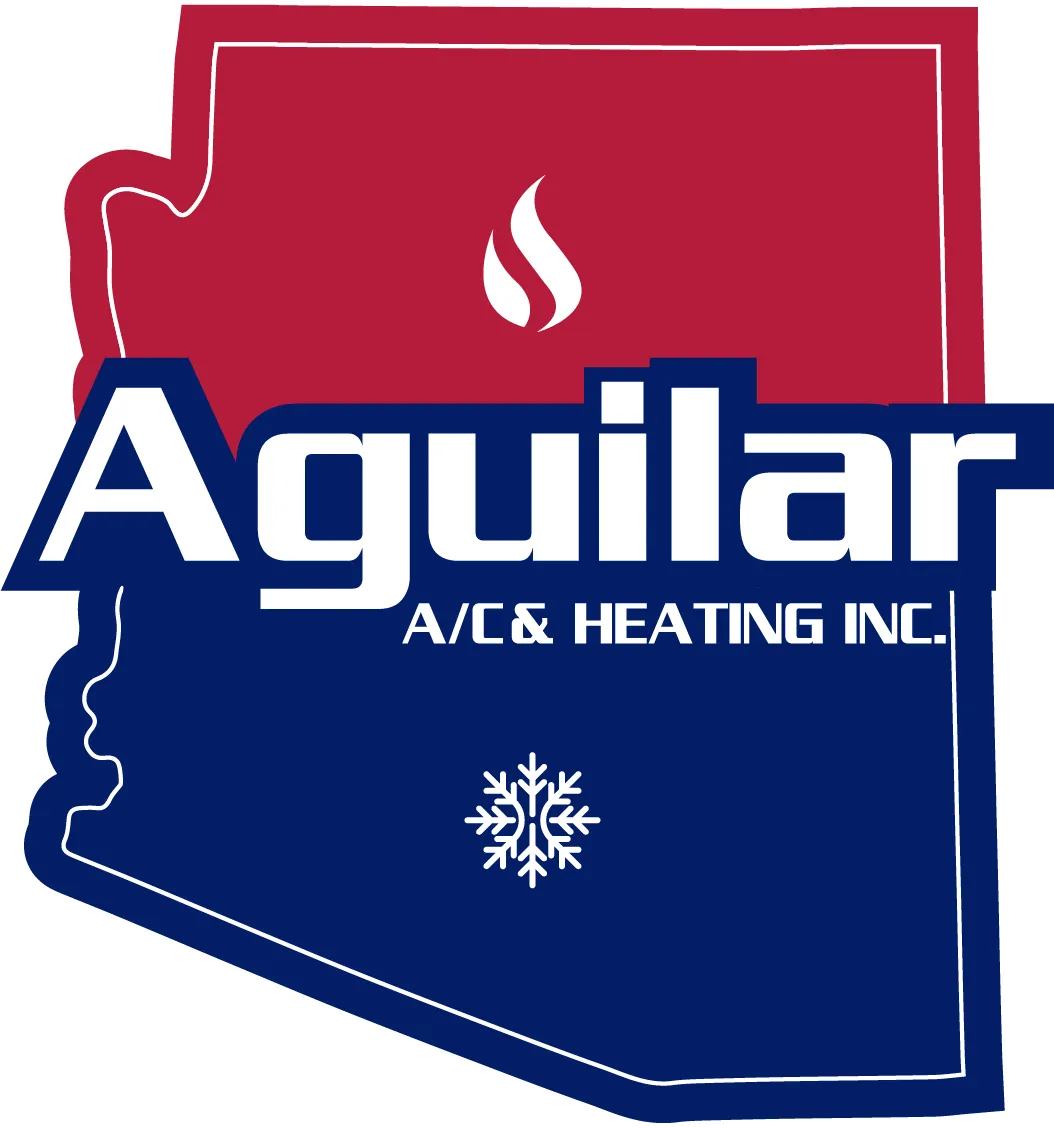Aguilar A/C & Heating
Blog

Signs Your Commercial HVAC Unit Needs Replacement in Phoenix
Your commercial HVAC unit is the workhorse of your building. In Phoenix, where sweltering heat is the norm, it carries a heavy burden year after year. But even the best systems don’t last forever.
At some point you’ll face the decision: keep repairing the existing unit or replace it altogether. The tricky part is knowing when replacement is the smarter, more cost-effective choice. This guide will walk you through the most common signs that indicate your commercial HVAC system is reaching the end of its lifespan, plus tips for making the right replacement decision.
Why Replacement Matters in a Harsh Climate
A failing HVAC system can lead to expensive downtime, complaints from tenants or employees, rising energy bills, and even damage to sensitive equipment. Phoenix’s extreme heat only makes these risks worse — systems run longer and experience more stress than in other regions. Acting before a full system breakdown is the best way to avoid a business-interrupting emergency.
Common Signs Your Commercial HVAC Unit Needs Replacement
Recognizing the symptoms of a failing system early can save time, money, and frustration. Here are the most important signs to watch for:
Frequent Breakdowns and Rising Repair Costs
When you’re calling for service more often and major components like compressors or motors keep failing, you’re likely spending more on repairs than you would on a new system in the long run.
Higher Energy Bills Without Increased Usage
Aging units lose efficiency. If your monthly utility bills are steadily climbing, your system may be working overtime to produce the same cooling output — a clear sign of wear and declining performance.
Inconsistent Temperatures Throughout the Building
Uneven cooling or hot and cold spots across zones indicate that the system may no longer have the capacity or control to balance airflow. This is a frequent sign in older systems that are wearing out.
Unusual Noises or Odors
Grinding, banging, or squealing noises, along with musty or burning smells, are warning signs that key mechanical or electrical parts are failing and may soon give out completely.
Weak Airflow or Underperformance
If vents have weak airflow even after filter changes and maintenance, the blower motor or other internal components may no longer be able to keep up with demand.
Humidity or Air Quality Issues
When the system can’t properly dehumidify or control air quality, it can cause mold growth, musty odors, or general discomfort — all signs the unit is losing effectiveness.
Advanced Age or Outdated Technology
Most commercial HVAC systems last 15–20 years. In Phoenix, where systems work harder, that lifespan can be closer to 12–15 years. If your unit is older, replacement is usually the safer and more cost-effective move.
Difficulty Finding Replacement Parts
If your contractor reports that parts are back-ordered, discontinued, or prohibitively expensive, it may be time to plan for a full replacement instead of more temporary fixes.
How to Decide: Repair or Replace?
When weighing your options, keep these key factors in mind:
Cost of Repairs vs. Replacement – If one repair is more than 10–20% of a new unit’s cost, replacement is usually the better long-term investment.
Impact on Operations – Frequent breakdowns lead to business disruption. Consider the cost of downtime in your decision.
Remaining Service Life – Even after a repair, how much longer can you expect the unit to last? If it’s near the end of its life, replacing now may save repeated costs.
Efficiency Gains – Newer systems are far more energy-efficient and can lower monthly operating costs.
Capacity Needs – If your building’s use has changed since installation, a new system can be properly sized and designed for today’s demands.
FAQs
How long should a commercial HVAC unit last in Phoenix?
Typically 12–15 years with heavy use, up to 20 with excellent maintenance and favorable conditions.Is it worth repairing an old commercial HVAC system?
Yes, for isolated, minor issues — but when major failures repeat, replacement is usually the most economical solution.What happens if I delay replacement too long?
You risk unexpected failure during peak heat, emergency repair costs, and discomfort for employees or tenants.Can parts of the system be upgraded instead of full replacement?
In some cases, yes — but if major components like the compressor or coil are failing, full replacement is more reliable.
Conclusion
A failing commercial HVAC unit can quickly lead to lost productivity, higher energy bills, and unhappy building occupants. By recognizing the warning signs early — frequent repairs, rising costs, uneven cooling, odd noises, and system age — you can plan ahead and replace your system before it fails completely.
If your system is showing these signs, schedule an inspection with a trusted Phoenix HVAC contractor. A proactive replacement will give you a more reliable, efficient system and peace of mind through the hottest months of the year.
Our Services
Helpful Links
Contact Information
Phoenix, AZ 85042
Business Hours
Mon - Fri: 8:00 am - 4:30 pm
Sat & Sun: Closed
© 2025 All Rights Reserved | Aguilar A/C & Heating

